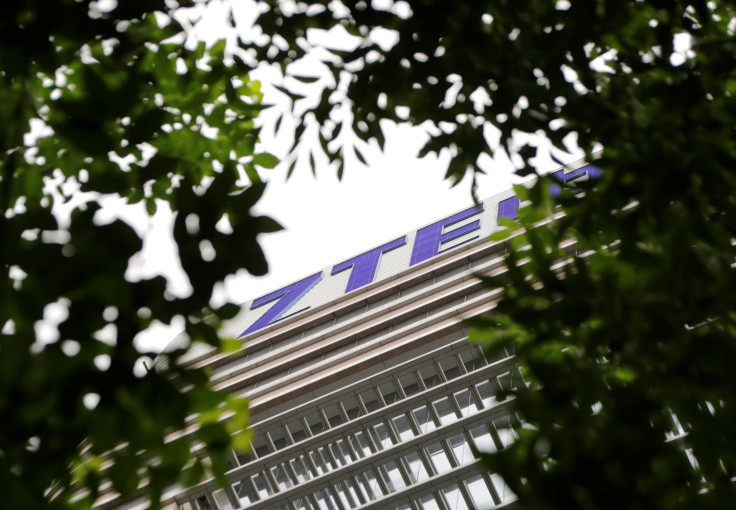Senate, White House Gear Up For Battle Over China's ZTE

Legislation to block the Trump administration's agreement allowing China's ZTE Corp to resume business with American suppliers could be killed in the U.S. Congress in the coming weeks, lawmakers and aides said on Wednesday.
The U.S. Senate is due to vote within days on the measure as part of the National Defense Authorization Act, or NDAA, a defense policy bill Congress passes every year. The White House strongly opposes the ZTE measure.
If it passes, the House of Representatives and Senate must negotiate a final version of the NDAA. The ZTE provision, which is not included in the House version of the defense bill, could be stripped out during those negotiations.
Mac Thornberry, the Republican chairman of the House Armed Services Committee, said he would oppose anything in the NDAA not germane to the Defense Department if it threatened to delay swift passage of the $716 billion bill, which governs everything from military pay raises to aircraft and ship purchases, military aid and other national security policies.
He said that process could be completed by the end of July.
The House NDAA includes a separate provision barring U.S. government agencies from using "risky" technology from ZTE or Huawei Technologies [HWT.UL], describing the Chinese telecommunications companies as "linked to the Chinese Communist Party's intelligence apparatus."
Should it become law, the ZTE measure would restore penalties on the company for violating export controls and bar U.S. government agencies from purchasing or leasing equipment or services from the Chinese company.
The U.S. government banned the company earlier this year, but the Trump administration reached an agreement to lift the ban, while it is negotiating broader trade agreements with China and looking to Beijing for support during negotiations to halt North Korea's nuclear weapons program.
Chinese President Xi Jinping requested the change.
STIFF PENALTY ON ZTE
In a settlement with the U.S. Commerce Department, ZTE agreed to pay a $1 billion fine, overhaul its leadership and meet other conditions, including putting $400 million in escrow in a U.S.-approved bank.
The White House pushed back against the legislation, defending the agreement as "part of an historic enforcement action" giving the U.S. government some leverage over ZTE's activity without "undue harm" to U.S. suppliers and workers.
White House spokesman Hogan Gidley said the administration will work with Congress to ensure that the final version of the NDAA "respects the separation of powers."
And some of Trump's fellow Republicans, who control Congress, back the White House.
Republican Senator David Perdue tried and failed to win the Senate's support for killing the ZTEmeasure on Wednesday, arguing that limiting the Commerce Department's authority would undercut Trump's ability to negotiate trade deals with China.
But the ZTE measure's main sponsors, Democratic Senator Chris Van Hollen and Republican Senator Tom Cotton, both said they believed it had enough support from Republicans and Democrats to pass the Senate despite White House opposition.
"These companies have proven themselves to be untrustworthy, and at this point I think the only fitting punishment would be to give them the death penalty - that is, to put them out of business in the United States," Cotton said in a Senate speech, referring to both ZTE and Huawei.
Cotton said he and Van Hollen would keep working in the common months to ensure the ZTE measure stays in the defense bill.
ZTE shares plunged in Hong Kong and Shenzhen markets on Wednesday in its first day of trading after an almost two-month halt. Investors wiped about $3 billion off its market value, or about 40 percent, in initial trading.
© Copyright Thomson Reuters {{Year}}. All rights reserved.





















